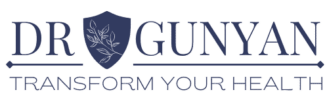There are many types of, and reasons for, chest pain. Chest pain can be sharp and stabbing, dull and aching, or even burning or crushing. At times, chest pain radiates into the neck, shoulder, back or jaw, or down the arms. Although it can be the result of injury or disease, the most life-threatening conditions causing chest pain involve the lungs or the heart.
Causes of Chest Pain
Any chest pain should be medically evaluated, because it sometimes requires urgent medical, or even surgical, intervention.
Digestive Causes of Chest Pain
Some chest pain is caused by digestive problems of varying degrees of seriousness:
- Heartburn or acid reflux
- Gas
- Swallowing disorders
- Disorders of the gallbladder or pancreas
Heart-Related Causes of Chest Pain
There are a variety of heart-related causes for chest pain, including the following:
- Heart attack
- Angina
- Aortic dissection
- Pericarditis
Lung-Related Causes of Chest Pain
In many cases, chest pain is caused by the following conditions or diseases:
- Pleurisy, pneumonia and bronchitis
- Pulmonary hypertension
- Pulmonary embolism (lung clot)
- Pneumothorax (collapsed lung)
Other Causes of Chest Pain
Chest pain has numerous other causes, some related to injuries, and others to localized or systemic diseases:
- Costochondritis (inflammation of rib-cage cartilage)
- Bruised or broken ribs
- Sore muscles
- Chronic-pain syndrome (fibromyalgia)
- Shingles
Although it may not indicate a serious medical disorder, and is a common symptom of panic attacks, any chest pain should be medically evaluated.
Symptoms
At times, the symptoms associated with chest pain are indicators of the pain's origin. Heart-related chest pain is more like to be described as crushing of burning, and is more likely to radiate to the jaw, neck, back, or shoulders and arms, particularly the left arm. Heart-related pain is also most often associated with shortness of breath, dizziness, cold sweats and nausea or vomiting. It may also be experienced as chest tightness and may vary in intensity.
Chest pain not related to the heart, on the other hand, may be associated with a sour taste in the mouth, regurgitation, trouble swallowing, improvement when the patient changes position, or tenderness when the chest in pushed on.
Diagnosis of Chest Pain
Medical evaluations of chest pain, which usually take place in an emergency room, test first for the most dangerous possibilities in order to rule out or treat life-threatening conditions as quickly as possible. Immediate tests usually performed to diagnose chest pain include the following:
- Electrocardiogram (EKG/ECG)
- Chest X-ray
- Blood tests for enzymes
- CT scan
If the results of these immediate tests are inconclusive or require further exploration, follow-up tests may be administered; they include tests for heart disease, such as echocardiograms, stress tests or angiograms, or tests to explore the possibility of injuries, other diseases or digestive disorders.

